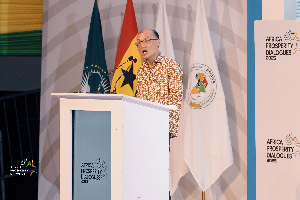The largest teacher union in Ghana, the Ghana National Association of Teachers (GNAT) has advised government to reopen schools in phases to avoid the spread of coronavirus during the pandemic.
The Association suggests, final year students for both basic schools and Senior High schools should be allowed to return to school for preparation towards their final exams.
General Secretary of GNAT, Thomas Musah, said it would be disastrous if government reopens allow students at all levels to return to the classroom.
“…we are saying that we should hasten slowly. What it means is that we cannot do wholesale opening from Kindergarten to Senior High School, that cannot happen. It will be a disaster. So, what we are saying is that even if we want to return, let us return to our normal life in safety. So, what we can do is that we can look at WASSCE candidate and the BECE candidate. Let’s focus on them now and put the WHO protocols in place and let them write the exams. If we come below these ones, then we are in for trouble.”
GNAT on May 28, 2020 launched “Impact Assessment of COVID-19 on the education sector in Ghana: The perspective of GNAT” which provides Key guidelines and recommendations that need to be adopted in the educational sector during the COVID-19 pandemic.
Some of the recommendations, include collaboration between Ministry of Education and MMDAs to institute means to ensure that students use their time meaningfully and not engage in any other activity aside studying while they stay home.
Partnerships and collaboration with unions, student learning, support to valuable students especially in the rural areas, and Psycho-social support were suggested to aid during the pandemic.
Guidelines on reopening of the schools by GNAT include the following;
*Schools should be opened in phases
* Fumigation of all schools and education, offices
*Class size should be reduced
*All teachers, learners and supporting staff must be tested across the country
*Provision of necessary preventive health materials (handwashing buckets, hand sanitizers, tissues, nose masks and reliable water supply.)
GNAT emphasized on the need to include students, especially those living with disabilities, as the impact of COVID-19 is worse for the lower socio-economic group with children with disabilities facing an even greater risk of being left behind in the scheme of things.
General News of Friday, 29 May 2020
Source: www.ghanaweb.com

















